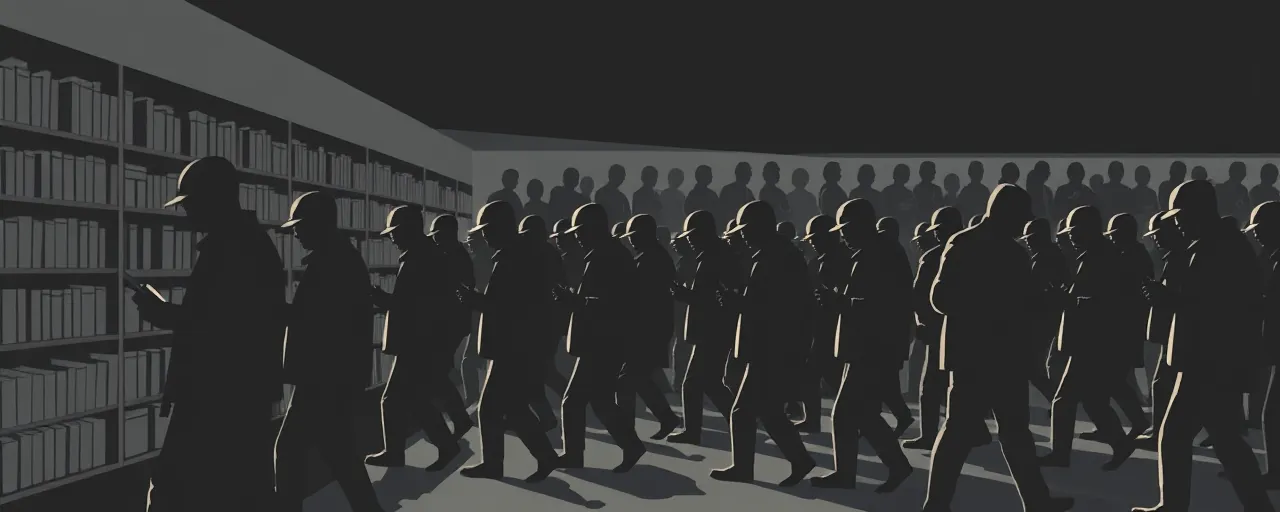A Crime Wave Hiding in Plain Sight
Walk into any drugstore today, and you’ll notice locked cases for toothpaste and shampoo. It’s not random. Organized retail theft has exploded, and a recent Pittsburgh case pulls back the curtain on this ugly truth. Durrell Waters, a 41-year-old who ran a fencing operation disguised as resale shops, was just sentenced to five years in prison. His scheme wasn’t a one-off grab-and-go. It was a calculated enterprise that preyed on vulnerable people and jacked up prices for everyone else. This isn’t just about stolen lipsticks; it’s about a system that’s failing to protect law-abiding citizens.
Waters’s conviction for money laundering and conspiracy reveals a deeper rot. For years, he bought stolen goods from shoplifters, many battling drug addiction, and flipped them online for millions. His storefronts, with names like Trader Electronics and Last Call Entertainment, looked legitimate. But they were fronts for a criminal network that fueled addiction and hurt honest businesses. This case demands we ask: why are we letting this go on? The answer lies in a justice system finally waking up to the need for real consequences.
The Real Victims: You and Your Wallet
Retail theft doesn’t just hit big-box stores. It slams every consumer. In 2022, retailers lost $112 billion to theft, a number projected to climb to $140 billion by year’s end. Those losses aren’t eaten by CEOs; they’re passed on through higher prices. Everyday items like razors and baby formula now cost more because of people like Waters, who turned addiction into profit. His operation bought stolen goods for pennies and sold them on Amazon and eBay, raking in over $4.3 million. Meanwhile, stores lock up merchandise, hire more security, and raise prices to cover the damage.
Then there’s the human cost. Many of Waters’s suppliers were addicts, desperate for cash to feed their habits. He didn’t just buy stolen goods; he bankrolled their misery, keeping them trapped in a cycle of crime and drugs. The opioid crisis, which still claims thousands of lives yearly, thrives on schemes like this. Advocates for softer penalties argue these are victimless crimes or that addiction excuses theft. That’s nonsense. Enabling addiction while hiking costs for honest families isn’t compassion; it’s complicity.
Why Tough Sentences Matter
Judge Mark Hornak got it right when he handed Waters five years. He called the evidence “extensive” and stressed that Waters chose this path daily for years. Unlike a spontaneous crime, this was deliberate, calculated greed. Hornak’s sentence sends a message: organized crime, even if it’s dressed up as a business, won’t get a pass. Federal guidelines, shaped by decades of refining how we punish white-collar crimes, back this up. They’re designed to deter by hitting offenders where it hurts: their freedom and their wallets.
Some argue for leniency, claiming prison doesn’t solve addiction or stop theft. They’d rather see rehabilitation programs or lighter penalties. But that ignores reality. Without real consequences, criminals like Waters have no reason to stop. The Sentencing Reform Act of 1984 aimed to ensure fairness and deterrence, and cases like this show why it’s still vital. Letting offenders off lightly only emboldens others to exploit the system, leaving consumers and communities to foot the bill.
Cleaning Up the Mess
Waters’s case is a wake-up call. Retail theft isn’t a petty issue; it’s a sophisticated racket that demands a stronger response. Online marketplaces like Amazon and eBay, where Waters sold his loot, are finally cracking down with laws like California’s SB 301, which tightens seller verification. But it’s not enough. Retailers are spending billions on AI surveillance and locked displays, yet theft keeps rising. The solution isn’t just better tech; it’s a justice system that holds criminals accountable and breaks the addiction-crime cycle with real rehabilitation for those who want it.
This isn’t about punishing the desperate; it’s about protecting the vulnerable and ensuring fairness. Waters didn’t just steal goods; he stole trust from communities and drove up costs for everyone. His sentence is a step toward justice, but it’s only one step. We need courts to keep prioritizing deterrence and lawmakers to close loopholes that let these schemes flourish. Anything less betrays the hardworking people who play by the rules.
The fight against retail theft is bigger than one man or one city. It’s about reclaiming our stores, our prices, and our safety from those who’d exploit addiction for profit. Waters’s five years behind bars is a start, but it’s on us to demand more. A system that rewards accountability over excuses is the only way to stop this crime wave from swallowing us whole.
